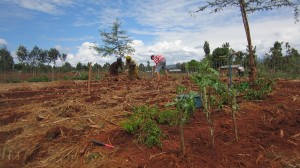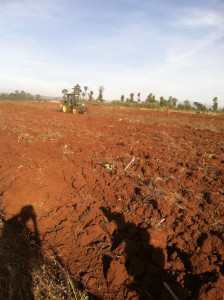Then God said, “Let there be lights in the firmament of the heavens to divide the day from the night; and let
them be for signs and seasons, and for days and years; and let them be for lights in the firmament of the heavens to give lights on the earth.” (Genesis 1:14-15)
What a great calamity for humanity, that many men and women will pass through this life without gaining full knowledge of the mysterious creation over their heads! Living as if life was a disturbing dream, so eager to avoid it. Many will behold the morning sun and exclaim, ”What a beautiful and mystical sight is the sun!,” while some will whisper, “Truly the moon is the splendor and beauty of heaven’s sky.” But beyond these simple expressions of appreciation and recognition, very few people will bother to understand why they exist; what are the main purposes for the luminaries, and why did the Lord God established them?
We learn from the Book Genesis that God didn’t create these heavenly bodies just for the sheer beauty and decoration of the sky, nor only to give man a spectacular sight to behold. He made them for higher reasons and a greater purpose. One of the higher reasons was to give man knowledge and understanding of signs and seasons, specifically, to enable him to prepare his land. In fact, the English word “season” is derived from the French saison, meaning “to sow.”
When is the last time you went outside to look at the stars at night? How often do you meditate on the wonder of God’s creation at the signs of the seasons? It seems to me that this generation is more out-of-touch with these ancient phenomena then its predecessors. Yet because of their dependence on the earth for sustenance, the ancients before us have had tremendous knowledge and understanding of such things. For example, the ancient Egyptians were well-versed in heavenly observance; they waited for the right time of sowing and harvesting. They discovered that the star (Sirius) preceded the flooding of River Nile; to them, this was the sign of a new planting season. The ancient Hebrews, no doubt, had great knowledge of seasonal changes as well. Jesus’ parable refers to this:
Then He also said to the multitudes, ” Whenever you see a cloud rising out of the west, immediately you say, ‘ A shower is coming’; and so it is. And when you see the south wind blow, you say, ‘There will be hot weather’; and there is. Hypocrites! You can discern the face of the sky and of the earth, but how is it you do not discern this time?” ( Luke 12:54)
Unlike other parts of the world that experience four full seasons of the year, many parts of Africa, the Middle East, and Asia experience only two distinct phenomena: dry and rainy seasons. In our area, we experience two rainy seasons. “Long rains” are during the months of April, May and early June. “Short rains” are for just a few weeks in November and December. After the season of short rains follows a long, dry season from mid-December to March.
Now is the time of year in our area when every farmer is busy preparing their fields for planting season, as the signs of long, rainy season are at hand. People employ different ways and systems of cultivating lands. Rich folks will hire big tractors, what we might call the “middle class” will employ oxen, and the poorest will have to plow with a jembe in hand.
After t he preparation the heavy rain will be here, and most farmers will plant their maize seeds. Corn takes almost 6 to 7 months before it is harvested. The right time for corn harvesting is during the short rainy season, November -December. Until then we pray for God’s blessing as farmers are committing themselves to His mercy in this life-sustaining occupation.
he preparation the heavy rain will be here, and most farmers will plant their maize seeds. Corn takes almost 6 to 7 months before it is harvested. The right time for corn harvesting is during the short rainy season, November -December. Until then we pray for God’s blessing as farmers are committing themselves to His mercy in this life-sustaining occupation.
Heaven sings! Heaven sings!
yet man can’t see,
Heaven sings! Heaven sings!
yet man continues to sin.
Why doesn’t man see,
though he has eyes?
Why doesn’t man understand,
though he has senses?Man is still a fool,
Man is a weary beast.


